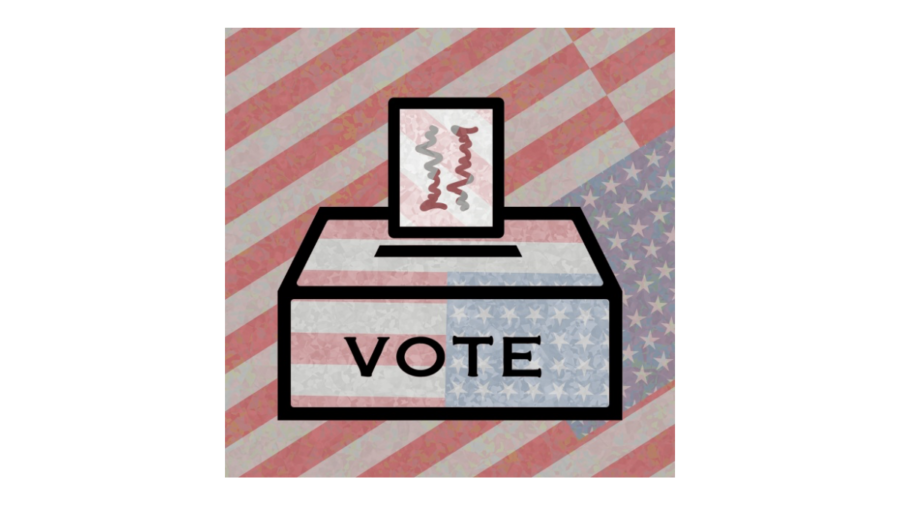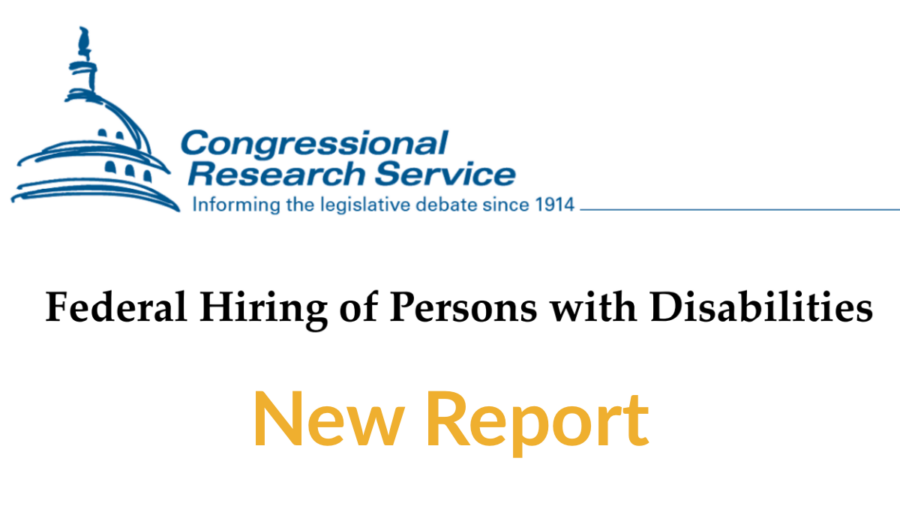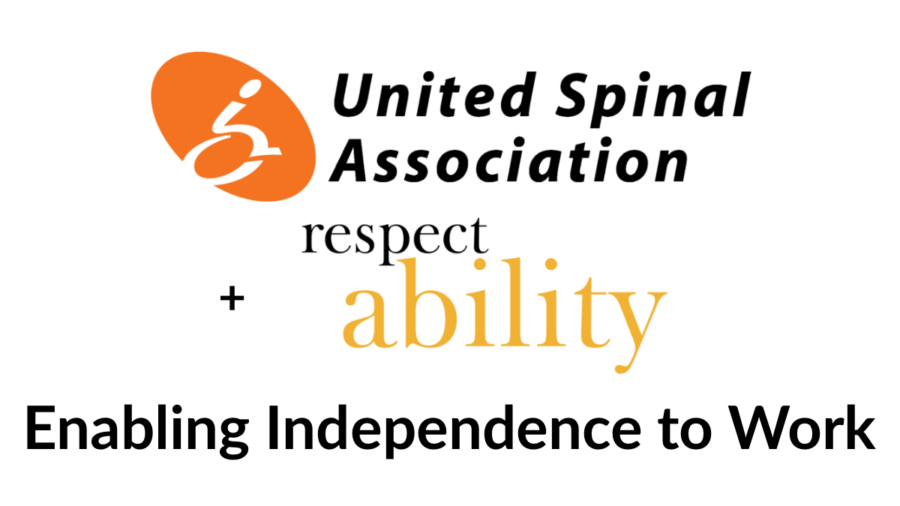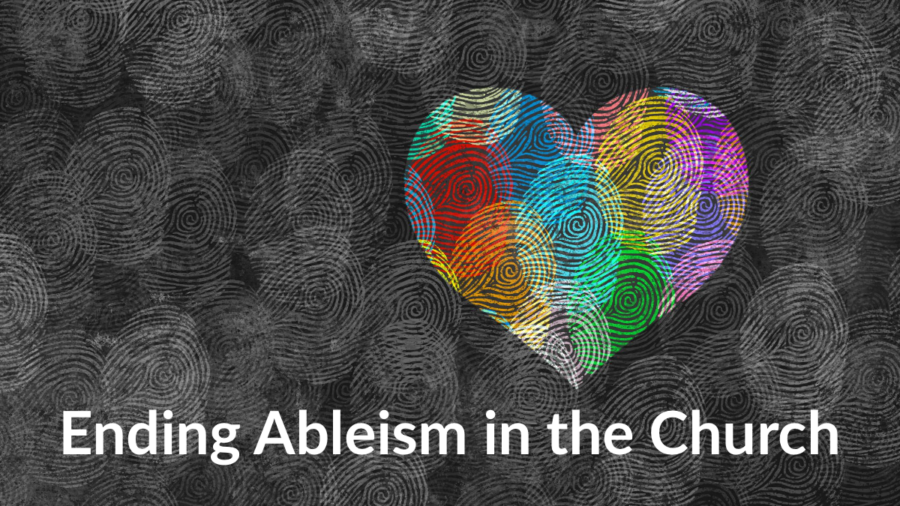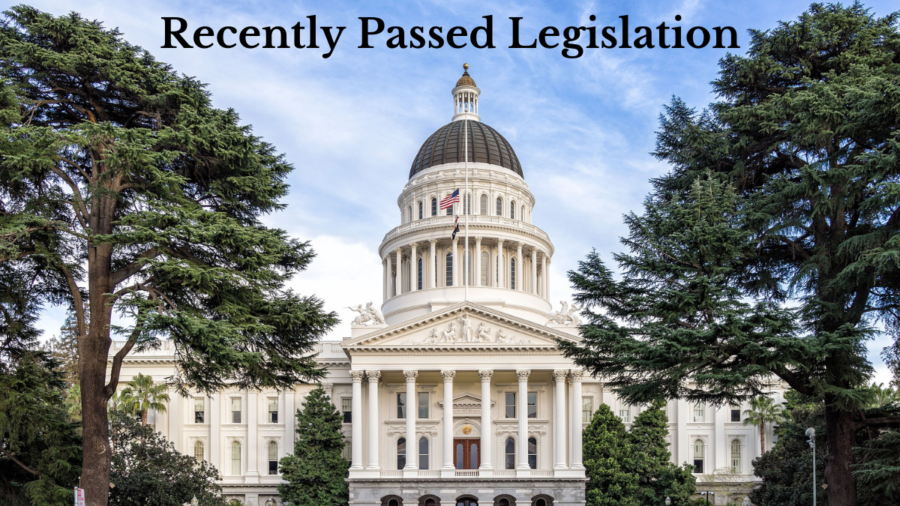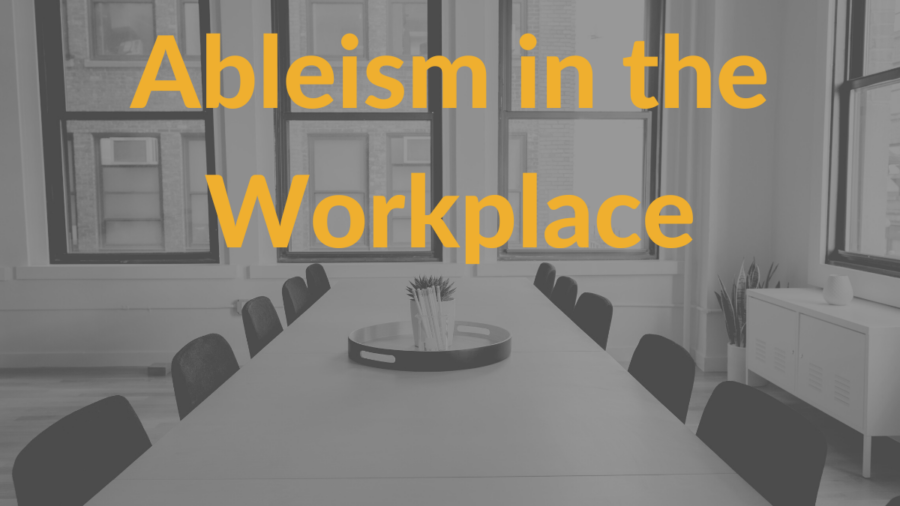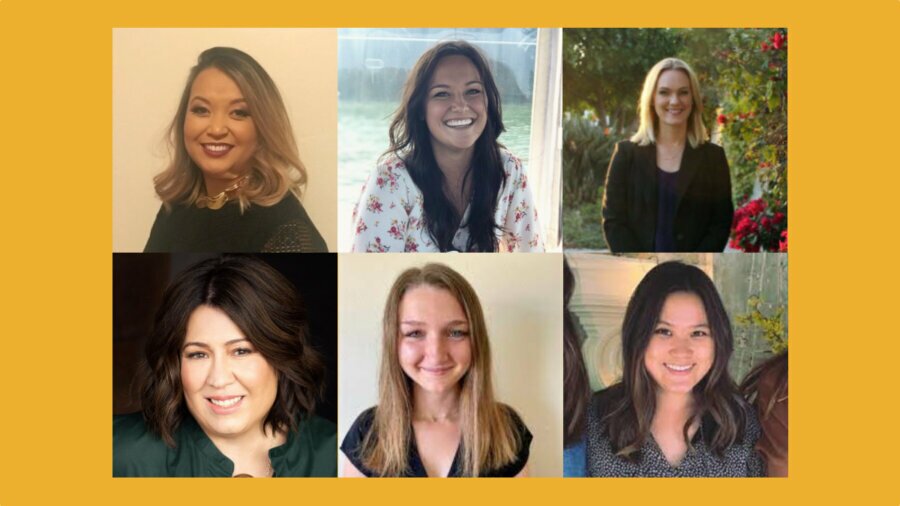The Americans with Disabilities Act protects voting rights for people with disabilities, but 32 years after its passage, voters with disabilities still experienced barriers to participating in the polls. In this election cycle, some particularly significant issues included a lack of poll worker training on using ADA-compliant voting equipment and poll workers not properly addressing challenges that prevent people with disabilities from voting. [continue reading…]
News
On November 28, the Congressional Research Service published a paper entitled “Federal Hiring of Persons with Disabilities.” The findings of the paper are neither surprising nor controversial, and state, in part:
“Despite efforts to increase recruitment and hiring of persons with disabilities, retention of employees with disabilities is significantly lower than that of employees without disabilities. According to OPM, employees with disabilities leave the federal government at about three times the rate of those without disabilities. OPM outlines a number of strategies to improve retention of employees with disabilities, such as providing workplace flexibilities and reasonable accommodations.”
In short, the Federal Government can successfully hire people with disabilities, but is lagging in retention, especially because of challenges in the process of flexible work and reasonable accommodation. [continue reading…]

Gabriella Helkowski
Grief is a primary feeling for those who have lost someone close. We will go through grief with every single person who has ever loved. Grief is an emotion that can come with loss. People who are grieving may experience complex emotions like feelings of helplessness, hopelessness, anger, sadness, numbness or confusion. [continue reading…]
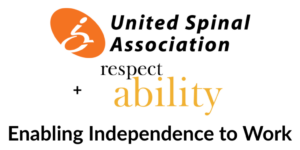 United Spinal Association and RespectAbility have embarked upon a major joint initiative to fundamentally change personal care for working people with disabilities by implementing market-driven solutions. The Enabling Independence to Work (EIW) program has designed a Medicaid buy-in model that will allow individuals with disabilities with personal care and complex medical needs to join the workforce. This program will be politically popular and economically feasible, as it will require substantial financial participation and still reward increased compensation. [continue reading…]
United Spinal Association and RespectAbility have embarked upon a major joint initiative to fundamentally change personal care for working people with disabilities by implementing market-driven solutions. The Enabling Independence to Work (EIW) program has designed a Medicaid buy-in model that will allow individuals with disabilities with personal care and complex medical needs to join the workforce. This program will be politically popular and economically feasible, as it will require substantial financial participation and still reward increased compensation. [continue reading…]
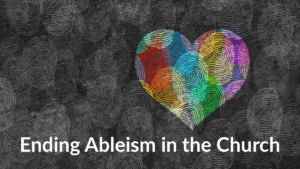 On August 11 and 12, we attended Let’s End Ableism at Church, an interactive webinar hosted by the Disability Concerns ministry of The Christian Reformed Church of North America and The Reformed Church in America.
On August 11 and 12, we attended Let’s End Ableism at Church, an interactive webinar hosted by the Disability Concerns ministry of The Christian Reformed Church of North America and The Reformed Church in America.
The first day largely focused on defining ableism in its many forms. The second day laid out practical solutions to ending discriminatory practices against disabled people in the Christian church.
Each day began with a song and reflection on scripture. The pastor giving the first reflection urged us to give grace to our oppressors so that we might invite them into the work of ending ableism. He reminded us that power is a threat to one’s faith in God, and so, in inviting oppressors to be liberators, we engage in life-saving work. [continue reading…]

Erica Mones
As a Disabled woman, I dread voting. Polling places are supposed to be accessible to Disabled voters, but in my experience, they seldom are. For one, I do not have the fine motor skills to fill in the bubbles. As a result, I need assistance to fill out the ballot.
I’ve heard horror stories about Disabled voters relying on election workers–workers who loudly repeat the voters’ choice or workers who try to talk the voter into making a different choice. As a result, I ask my mom to help me. She respects my voting choices, even when we are not voting for the same candidate. The election workers often let me do this with no problem.
However, this year when I voted in the primary election, one of the workers loudly shouted, “No cheating!” as my mom helped me fill out the ballot. I felt like a child singled out by a teacher for utilizing the reasonable accommodations outlined in my IEP. I was humiliated and angry. I was exercising my right to vote like anyone else; I just have to go about it a bit differently. I tried to laugh it off, but the worker continued to make a scene, filling the previously peaceful room with his boisterous voice. He repeated himself, even though I heard him perfectly the first time. I was reminded at that moment that I was different – that our society and its conventions were not designed for me. I was an other. I am an other. [continue reading…]
Washington, DC, November 2 – National Disability Employment Awareness Month just wrapped up, but the work to get more people with disabilities into the workforce continues. Below, we are spotlighting recently passed legislation empowering workers with disabilities across the United States.
Gov. Newsom of California signed SB-951, AB-1041, AB-152, which have a combination of priorities that overlap to create room for Californians with disabilities. The new laws boost benefits for lower and middle-income Californians. They extend wage rates for family and disability leave for workers earning less than average wages, allowing them to make up to 90 percent of their salary. The laws also allow employees to pay sick or family leave to care for a designated family member, and extend COVID-19 supplemental sick leave through the end of 2022. [continue reading…]
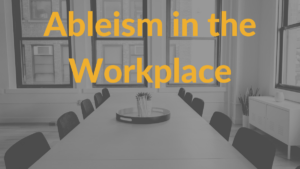 In the United States, workplace opportunities for people with disabilities have greatly expanded, and there’s more enlightenment toward people with disabilities. But there are still problems with ableism in the workplace.
In the United States, workplace opportunities for people with disabilities have greatly expanded, and there’s more enlightenment toward people with disabilities. But there are still problems with ableism in the workplace.
Outright scorn towards people with disabilities is not as commonplace as it was years ago when many states used to have ugliness laws during the late 1800s. These laws were used to discriminate against people with disabilities, especially physical disabilities, and they prevented disabled people from going out in public and getting jobs in almost any capacity. [continue reading…]
 Los Angeles, CA, October 28 – Ghouls Magazine recently hosted a Disability and Horror Day that included panels on identity, mental health, and finding community, moderated by RespectAbility Entertainment Lab alum Ariel Baska (she/her), as well as Rabia Sitabi (she/her). Several other RespectAbility Entertainment Lab alumni participated in the discussions. [continue reading…]
Los Angeles, CA, October 28 – Ghouls Magazine recently hosted a Disability and Horror Day that included panels on identity, mental health, and finding community, moderated by RespectAbility Entertainment Lab alum Ariel Baska (she/her), as well as Rabia Sitabi (she/her). Several other RespectAbility Entertainment Lab alumni participated in the discussions. [continue reading…]
Los Angeles, CA, Oct 21 – Some of the success behind the RespectAbility Entertainment Lab’s ability to help place its alumni in positions of employment is the Lab’s support from a variety of studios. As such, throughout the Lab, executives from DreamWorks Animation, Sony Pictures Entertainment, the Walt Disney Company, and Warner Bros Discovery shared tips with the virtual cohort Lab Fellows on how to advance within the entertainment industry. [continue reading…]


